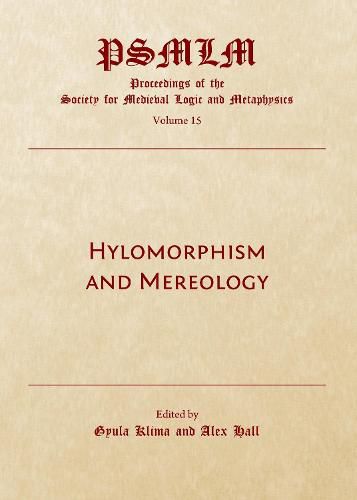Readings Newsletter
Become a Readings Member to make your shopping experience even easier.
Sign in or sign up for free!
You’re not far away from qualifying for FREE standard shipping within Australia
You’ve qualified for FREE standard shipping within Australia
The cart is loading…






Mereology is the metaphysical theory of parts and wholes, including their conditions of identity and persistence through change. Hylomorphism is the metaphysical doctrine according to which all natural substances, including living organisms, consist of matter and form as their essential parts, where the substantial form of living organisms is identified as their soul. The theories date to Plato and Aristotle and figure prominently in the history of philosophy up until the seventeenth century, where their influence wanes relative to a reductive materialism that culminates with deflationary accounts of objects and persons, where mere conglomerates constitute things and we are left to account for mental phenomena in terms of the powers of physical materials. In view of such difficulties, there is a renewed interest in hylomorphism, as its forms structure matter and can account for natural kinds, with their various capacities and powers. This volume presents medieval theories of hylomorphism and mereology, articulating the conceptual framework in which they developed and with an eye on their relevance today.
$9.00 standard shipping within Australia
FREE standard shipping within Australia for orders over $100.00
Express & International shipping calculated at checkout
Mereology is the metaphysical theory of parts and wholes, including their conditions of identity and persistence through change. Hylomorphism is the metaphysical doctrine according to which all natural substances, including living organisms, consist of matter and form as their essential parts, where the substantial form of living organisms is identified as their soul. The theories date to Plato and Aristotle and figure prominently in the history of philosophy up until the seventeenth century, where their influence wanes relative to a reductive materialism that culminates with deflationary accounts of objects and persons, where mere conglomerates constitute things and we are left to account for mental phenomena in terms of the powers of physical materials. In view of such difficulties, there is a renewed interest in hylomorphism, as its forms structure matter and can account for natural kinds, with their various capacities and powers. This volume presents medieval theories of hylomorphism and mereology, articulating the conceptual framework in which they developed and with an eye on their relevance today.